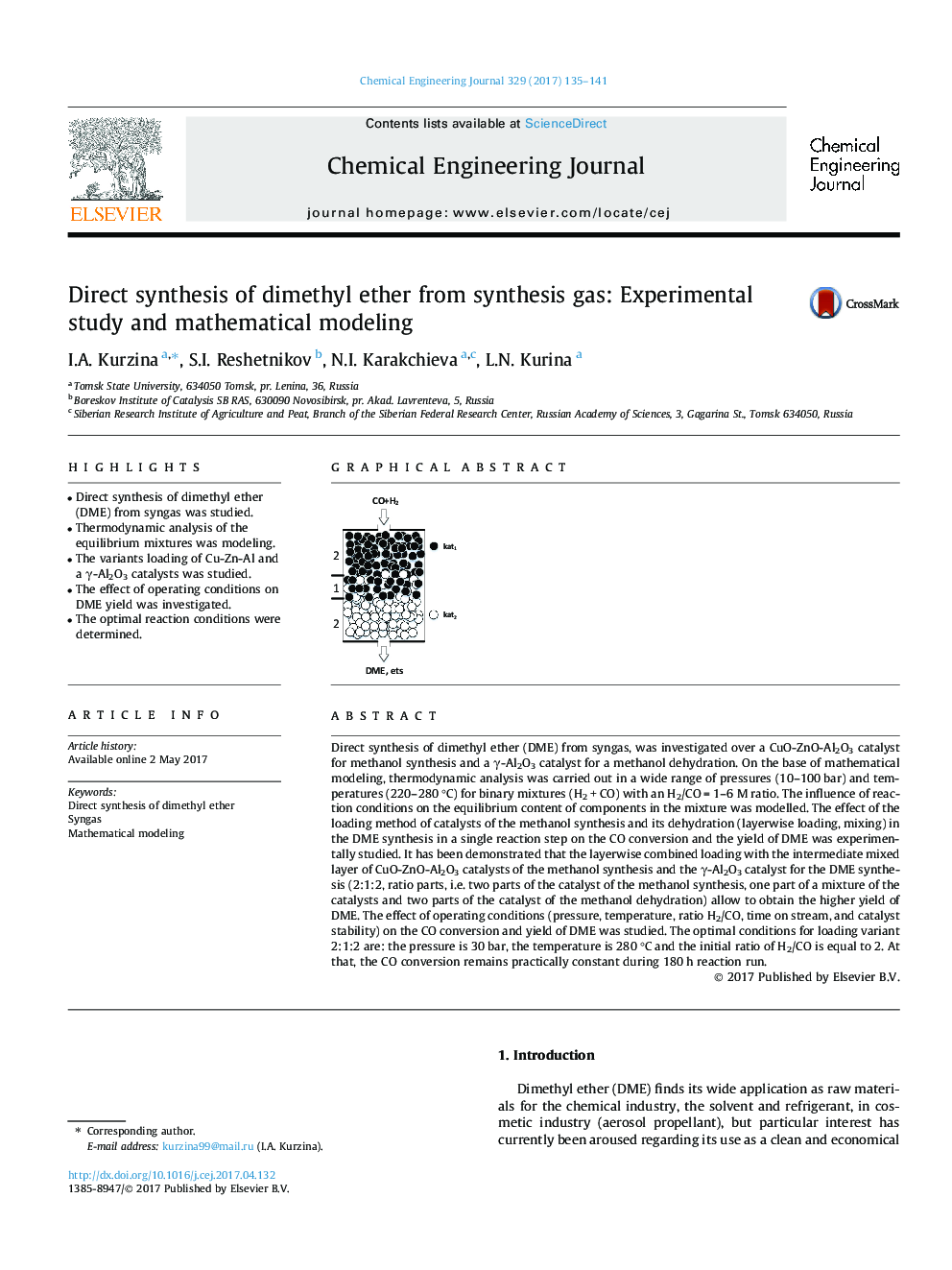| Article ID | Journal | Published Year | Pages | File Type |
|---|---|---|---|---|
| 6465398 | Chemical Engineering Journal | 2017 | 7 Pages |
â¢Direct synthesis of dimethyl ether (DME) from syngas was studied.â¢Thermodynamic analysis of the equilibrium mixtures was modeling.â¢The variants loading of Cu-Zn-Al and a γ-Al2O3 catalysts was studied.â¢The effect of operating conditions on DME yield was investigated.â¢The optimal reaction conditions were determined.
Direct synthesis of dimethyl ether (DME) from syngas, was investigated over a CuO-ZnO-Al2O3 catalyst for methanol synthesis and a γ-Al2O3 catalyst for a methanol dehydration. On the base of mathematical modeling, thermodynamic analysis was carried out in a wide range of pressures (10-100 bar) and temperatures (220-280 °C) for binary mixtures (H2 + CO) with an H2/CO = 1-6 M ratio. The influence of reaction conditions on the equilibrium content of components in the mixture was modelled. The effect of the loading method of catalysts of the methanol synthesis and its dehydration (layerwise loading, mixing) in the DME synthesis in a single reaction step on the CO conversion and the yield of DME was experimentally studied. It has been demonstrated that the layerwise combined loading with the intermediate mixed layer of CuO-ZnO-Al2O3 catalysts of the methanol synthesis and the γ-Al2O3 catalyst for the DME synthesis (2:1:2, ratio parts, i.e. two parts of the catalyst of the methanol synthesis, one part of a mixture of the catalysts and two parts of the catalyst of the methanol dehydration) allow to obtain the higher yield of DME. The effect of operating conditions (pressure, temperature, ratio H2/CO, time on stream, and catalyst stability) on the CO conversion and yield of DME was studied. The optimal conditions for loading variant 2:1:2 are: the pressure is 30 bar, the temperature is 280 °C and the initial ratio of H2/CO is equal to 2. At that, the CO conversion remains practically constant during 180 h reaction run.
Graphical abstractDownload high-res image (57KB)Download full-size image
